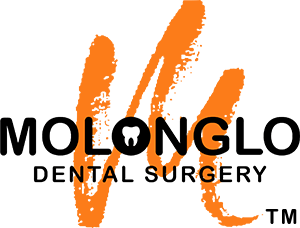Tooth decay can lead to irreparable tooth damage and loss, causing a severe decline in one’s quality of life. However, with timely intervention and the right treatments, tooth decay can be reversed.
Tooth decay symptoms
Before anything else, we must first comprehend what tooth decay entails and how to detect its early symptoms throughout the tooth decay stages – including early stage tooth decay.
Tooth decay affects both the enamel, the tooth’s outer coating, and the dentin layer. The buildup of carbohydrates, including sugars and starches, on the teeth causes tooth decay.
So what causes tooth decay? The bacteria in our mouth digest these foods and produce acids that create plaque, consisting of bacteria, acid, food debris, and saliva, which sticks to the teeth. The plaque acids slowly erode the enamel, leading to cavities.
Tooth decay stages
It is also important to understand the progression of tooth decay. As mentioned, it begins with the assault of acid from plaque that leads to the corrosion of the enamel, which is the tooth’s outermost layer. Continuous exposure to acid results in the gradual deterioration of the enamel.
Early stage tooth decay
Initially, tooth decay symptoms manifest as a white spot, typically located near the gum line. Neglecting to address this early warning sign could lead to a cavity or hole in the tooth.
If the cavity remains untreated, the decay could spread deeper into the tooth and cause severe tooth pain or even an abscess. In advanced stages of decay, the tooth’s appearance is characterized by yellow-brown or black discoloration.
Signs of tooth decay
What are the signs of tooth decay? The symptoms of tooth decay may initially be challenging to discern, but some common warning signs should not be ignored. These include sudden pain when biting or chewing, a toothache with no apparent cause, sensitivity to hot, cold, or sweet foods, and visible white or dark spots or holes on a tooth.
Comprehensive guide to preventing tooth decay
At Molonglo Dental Surgery, our team of experts has crafted a comprehensive guide to preventing tooth decay, starting with the basics:
Brush Regularly with the Correct Technique: Our dental professionals recommend brushing for two minutes twice a day, using a 45-degree angle to brush both teeth and gums. This method effectively removes debris, plaque, and particles from both the soft tissue and teeth. We suggest using a power toothbrush with sonic vibrations or a rotating head for better results. Avoid using hard-bristled toothbrushes or brushing too hard, which can lead to gum recession.
Floss Daily: Flossing is the most underutilized dental hygiene practice, yet it is the most effective method of keeping the spaces between teeth clean and debris-free. Floss comes in various forms, including string floss, flossing brushes, and water flossing devices. Initially, flossing may feel like a chore, but with time, it becomes a habit and helps avoid cavities between teeth.
Use Mouthwash: Mouthwash contains bacteria-fighting ingredients that blast away leftover plaque, food, and germs. It’s crucial to read the mouthwash label to ensure proper rinsing. Swish a capful of mouthwash for at least 30 seconds. If the alcohol in your mouthwash causes irritation, switch to an alcohol-free formula. Use mouthwash every time you brush your teeth for a cleaner mouth and fresher breath.
Avoid Sugary and Acidic Foods or Drinks: Sugar is the fuel for bacteria in your mouth, leading to tooth decay. Less sugar means fewer cavities. Acidic foods and beverages can be equally harmful to teeth. Certain foods and drinks should be avoided to maintain optimal oral health.
Regular Dental Cleanings: Early detection of serious tooth decay and cavities is essential to avoid severe tooth damage. Routine teeth cleanings can prevent cavities by removing the buildup on teeth that would otherwise cause decay. Bi-annual cleaning and examinations with your dentist are crucial.
At Molonglo Dental Surgery, we believe that prevention is the key to a healthy and bright smile. Regular dental appointments and oral hygiene maintenance can prevent dental fillings, root canals, and other costly dental procedures caused by neglecting tooth decay. Don’t be misled by dental myths that suggest that you don’t need to see a dentist. If you’ve been putting off your dental visits, it’s never too late to improve your smile’s health.
Book an appointment with our Friendly Dentist in Molonglo Valley. Contact Molonglo Dental Surgery at 02 6287 1222.
Our team of dental professionals is always ready to assist you in maintaining optimal oral health.



